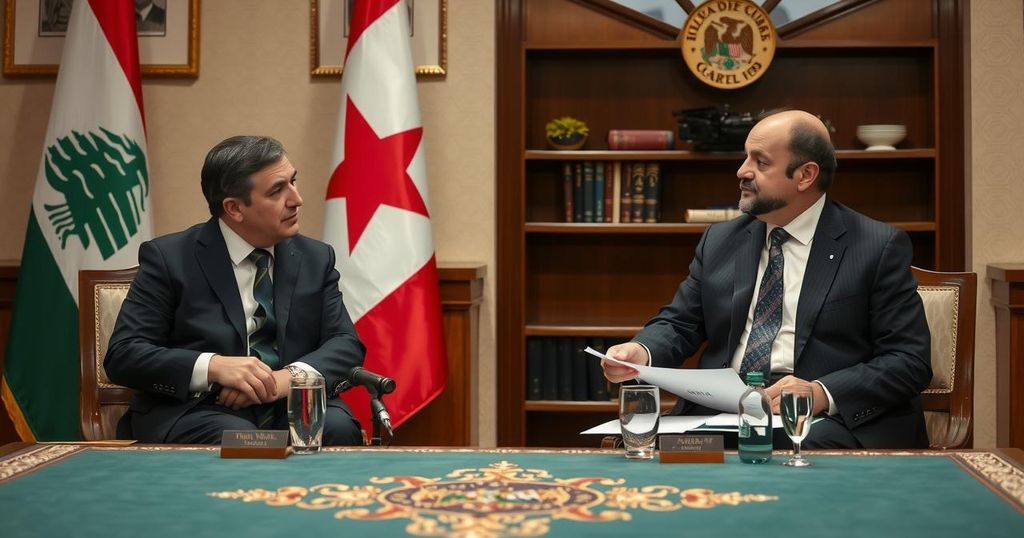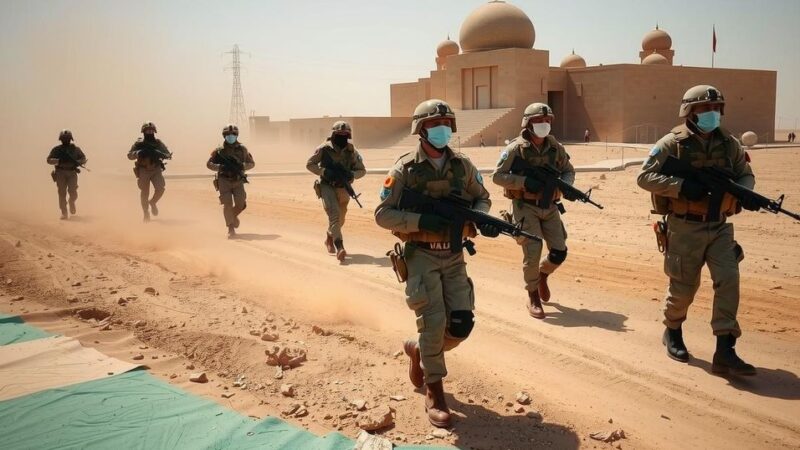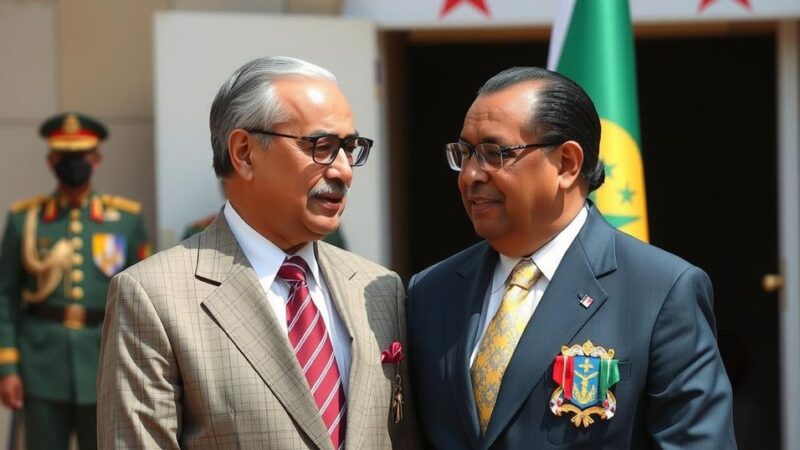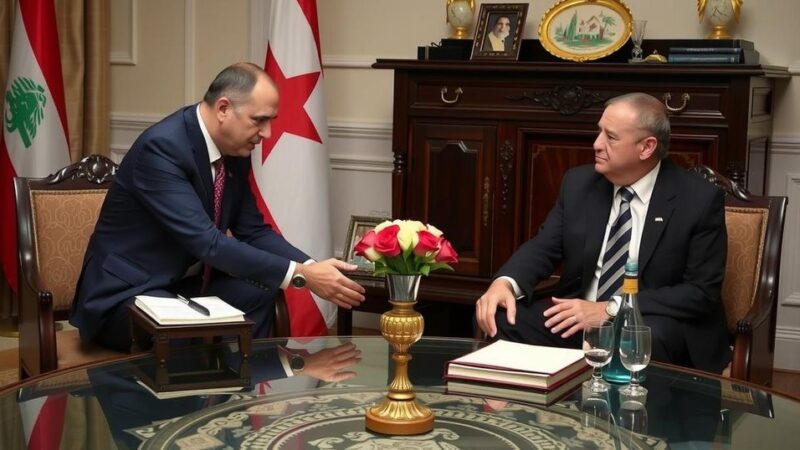Lebanon’s Prime Minister Najib Mikati visited Syria for the first time to meet new Syrian government leader Ahmad al-Shara. The visit follows border clashes that injured Lebanese soldiers and occurs after Joseph Aoun’s election as Lebanon’s president. It addresses mutual security concerns amidst ongoing Syrian instability and possible spillover effects on Lebanon.
Prime Minister Najib Mikati of Lebanon made a significant visit to Damascus on Saturday, marking his first official engagement with Syria’s newly established government since the recent electoral changes. This visit occurred under the shadow of rising tensions, as it followed a series of border clashes that resulted in injuries to multiple Lebanese soldiers. During his meeting with Ahmad al-Shara, leader of Hayat Tahrir al-Sham, Mr. Mikati underscored Lebanon’s concerns about the potential spillover of Syria’s internal strife into its territories, a scenario that has become increasingly relevant given the chaotic history of the Syrian civil war.
The backdrop of this meeting is crucial; it comes shortly after the election of Joseph Aoun as Lebanon’s president, a position that had remained vacant for two years. Mr. Aoun’s imminent consultations for appointing a new prime minister indicate a shift in Lebanese governance that could influence future relations with Syria. The dialogue between Mr. Mikati and Mr. al-Shara reflects not only a diplomatic engagement but also a mutual recognition of security concerns stemming from the instability across their shared border, especially following last week’s skirmishes involving Syrian militants.
The recent visit by Prime Minister Najib Mikati signifies a notable attempt to re-establish diplomatic relations between Lebanon and Syria amid ongoing tensions. The Syrian conflict has produced significant instability in the region, and Lebanon, having shared historical ties with its neighbor, remains wary of the consequences of this volatility. The election of Joseph Aoun as Lebanon’s new president adds complexity to this situation, as a fresh leadership may reshape the nation’s foreign policy approach towards Syria and its internal security dynamics, which are heavily affected by ongoing conflicts and the presence of armed groups.
In conclusion, Prime Minister Najib Mikati’s visit to Syria constitutes a pivotal moment for Lebanese-Syrian relations, reflecting an effort to address mutual security concerns and navigate the complexities of a newly formed Syrian government. With the backdrop of recent border tensions and the recent presidential election in Lebanon, this diplomatic engagement holds the potential to influence the broader stability of the region significantly. As Lebanon prepares to appoint a new prime minister, the outcomes of this interaction will be closely monitored for further developments in bilateral relations.
Original Source: www.nytimes.com







